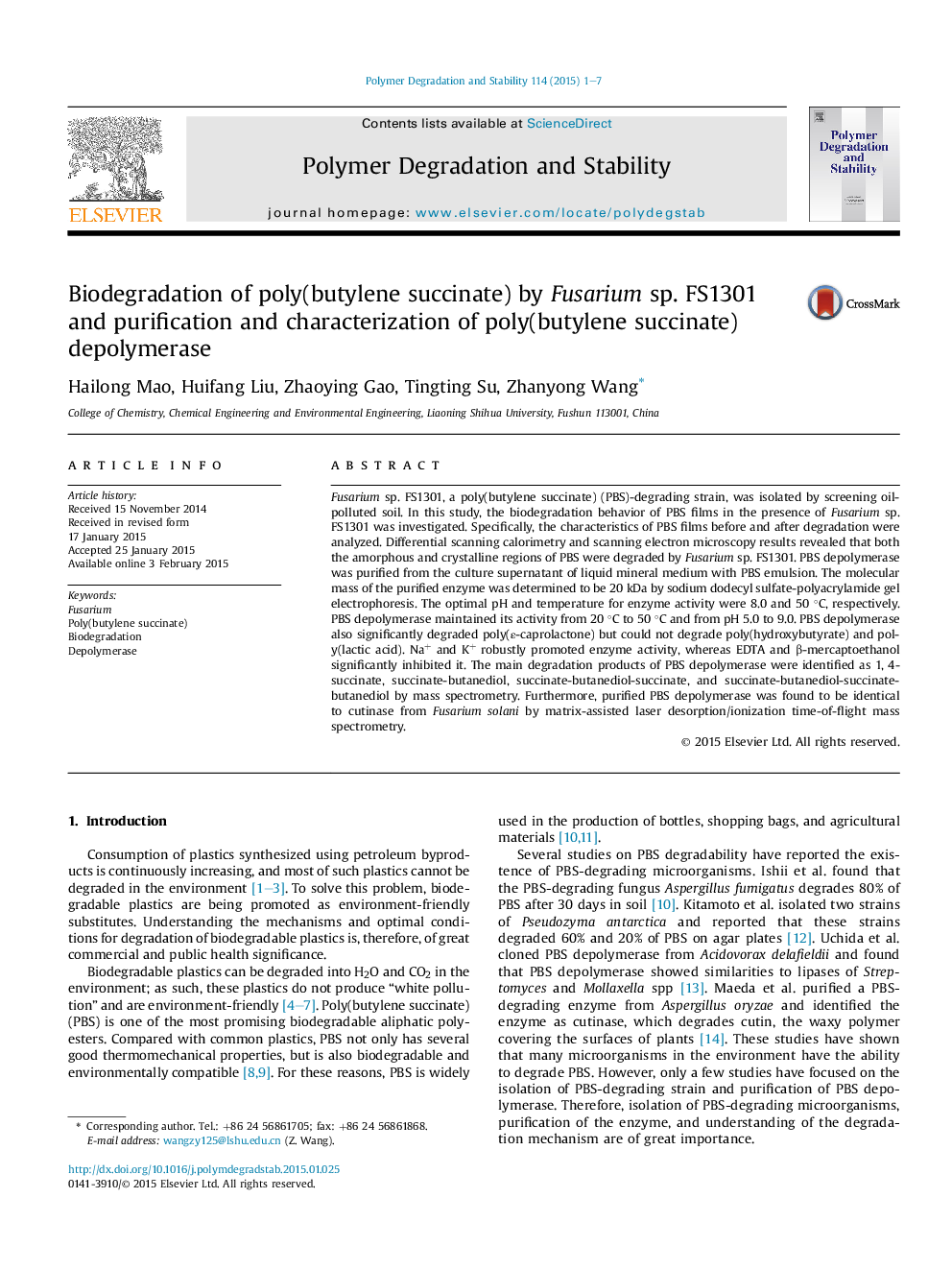| Article ID | Journal | Published Year | Pages | File Type |
|---|---|---|---|---|
| 5201578 | Polymer Degradation and Stability | 2015 | 7 Pages |
Fusarium sp. FS1301, a poly(butylene succinate) (PBS)-degrading strain, was isolated by screening oil-polluted soil. In this study, the biodegradation behavior of PBS films in the presence of Fusarium sp. FS1301 was investigated. Specifically, the characteristics of PBS films before and after degradation were analyzed. Differential scanning calorimetry and scanning electron microscopy results revealed that both the amorphous and crystalline regions of PBS were degraded by Fusarium sp. FS1301. PBS depolymerase was purified from the culture supernatant of liquid mineral medium with PBS emulsion. The molecular mass of the purified enzyme was determined to be 20 kDa by sodium dodecyl sulfate-polyacrylamide gel electrophoresis. The optimal pH and temperature for enzyme activity were 8.0 and 50 °C, respectively. PBS depolymerase maintained its activity from 20 °C to 50 °C and from pH 5.0 to 9.0. PBS depolymerase also significantly degraded poly(ε-caprolactone) but could not degrade poly(hydroxybutyrate) and poly(lactic acid). Na+ and K+ robustly promoted enzyme activity, whereas EDTA and β-mercaptoethanol significantly inhibited it. The main degradation products of PBS depolymerase were identified as 1, 4-succinate, succinate-butanediol, succinate-butanediol-succinate, and succinate-butanediol-succinate-butanediol by mass spectrometry. Furthermore, purified PBS depolymerase was found to be identical to cutinase from Fusarium solani by matrix-assisted laser desorption/ionization time-of-flight mass spectrometry.
